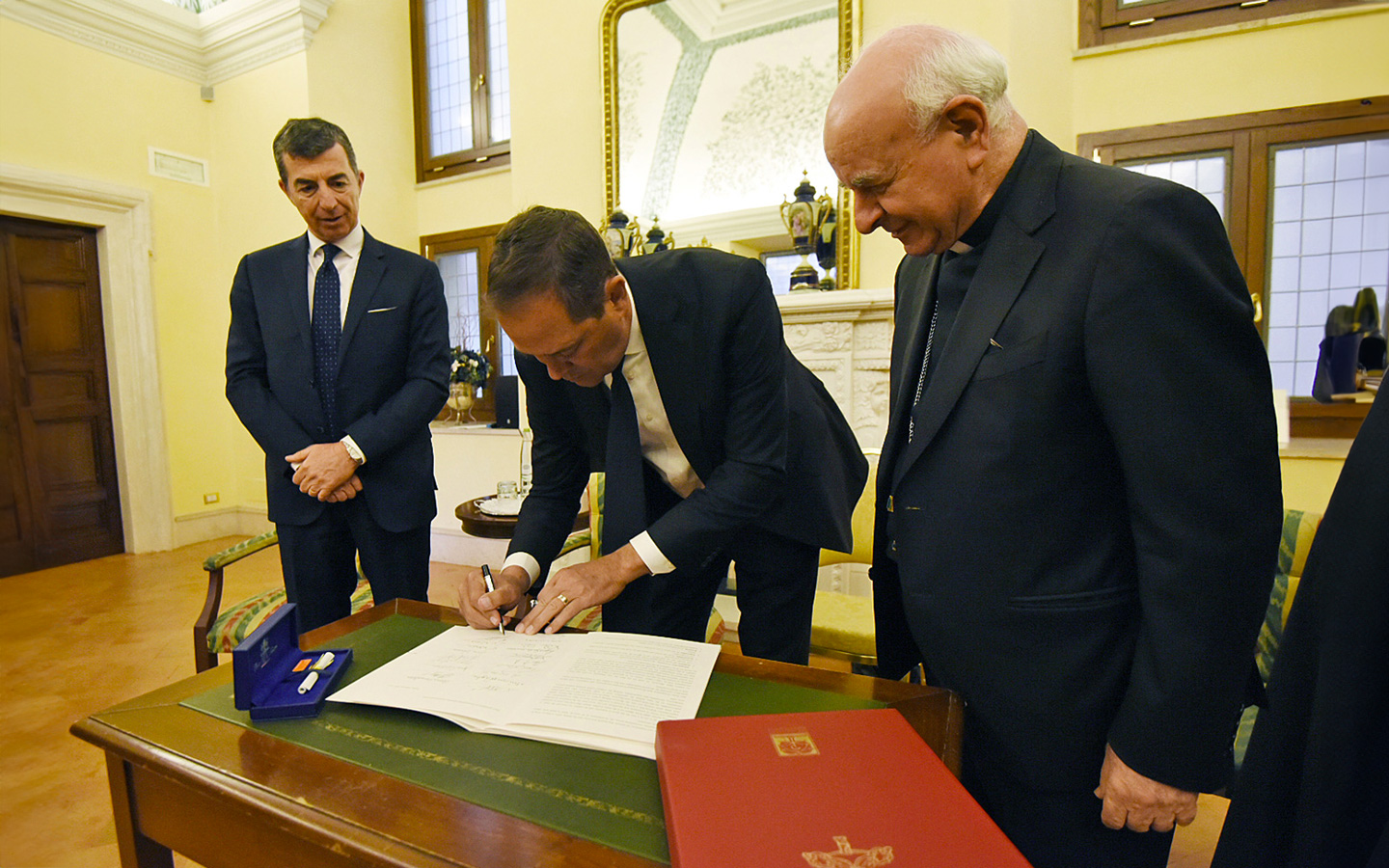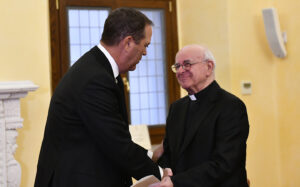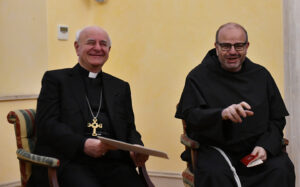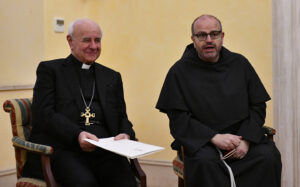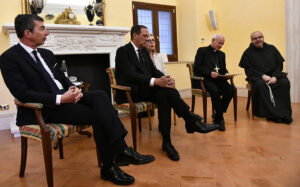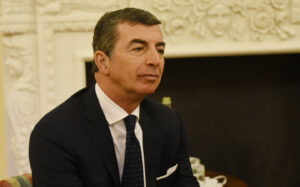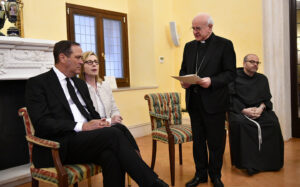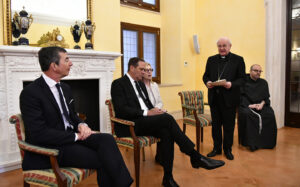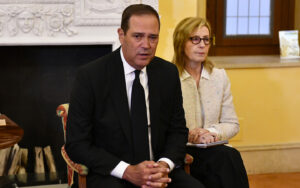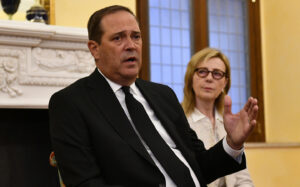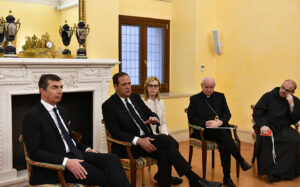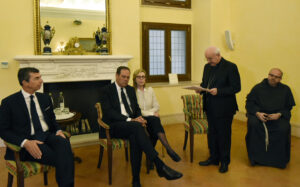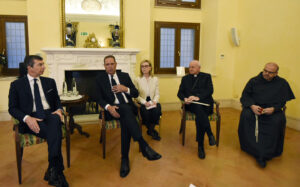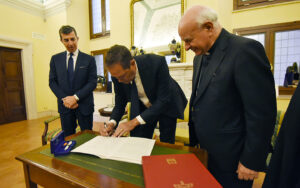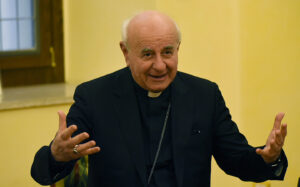The ceremony of the signing of the document, which has already been undersigned by international tech players such as Microsoft and IBM, institutions such as FAO, countless universities around the world, companies and individuals as well as representatives of the three Abrahamic religions, took place this morning in Rome.
“AI is fundamentally changing our world – presenting vast opportunities, but also new challenges. For nearly 40 years Cisco has built the networks that connect people and organizations across the globe, and today we are building the critical infrastructure and security solutions that will power the AI revolution,” said Chuck Robbins, Chair and CEO, Cisco. “The Rome Call principles align with Cisco’s core belief that technology must be built on a foundation of trust at the highest levels in order to power an inclusive future for all.”
The Rome Call signing ceremony followed an audience with the Holy Father Francesco at the Vatican, during which the Pope received the delegation.
At the end of the event, Father Paolo Benanti, Extraordinary Professor of Ethics of Technologies at the Pontifical Gregorian University, Scientific Director of the RenAIssance Foundation and member of the United Nations Advisory Body on Artificial Intelligence, said, “One of the key elements in addressing the transformations of AI is the enabling of its capabilities, which are rapidly advancing and transforming many sectors. Enabling AI capabilities in an ethical manner requires action in multiple directions: developing large, high-quality, unbiased data sets to train AI models; providing access to cyber infrastructure; building AI competencies; establishing governance frameworks to manage AI development; and providing AI systems that are transparent, accountable, and aligned with human values. Today’s Cisco’s signature of the Rome Call for AI Ethics is a step forward in this process. This is possible thanks to Cisco’s commitment to top-down thinking, proactive governance and risk mitigation, and to a broad perspective on the transformative impact of AI across industries and society.”
Credits: Vatican Media / Agenzia Siciliani
